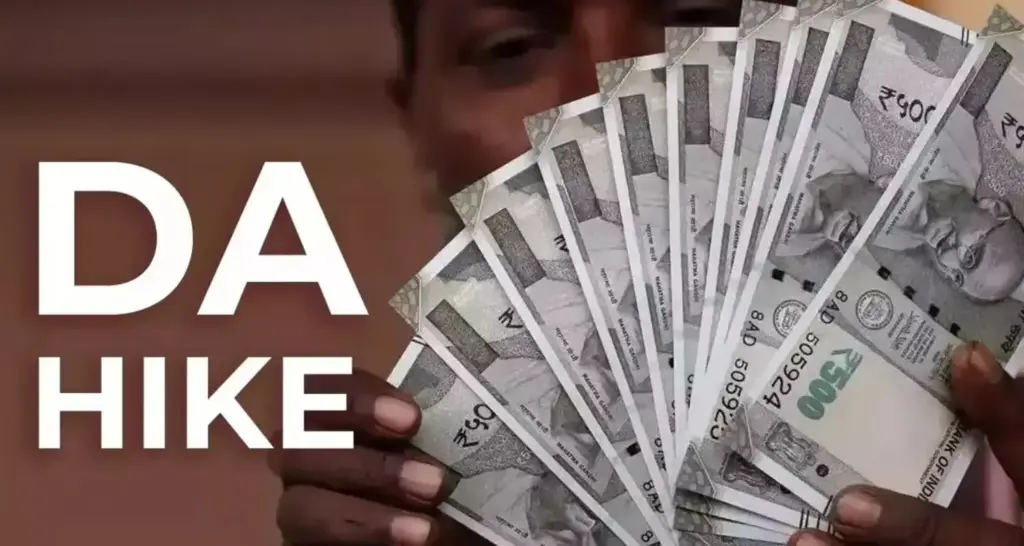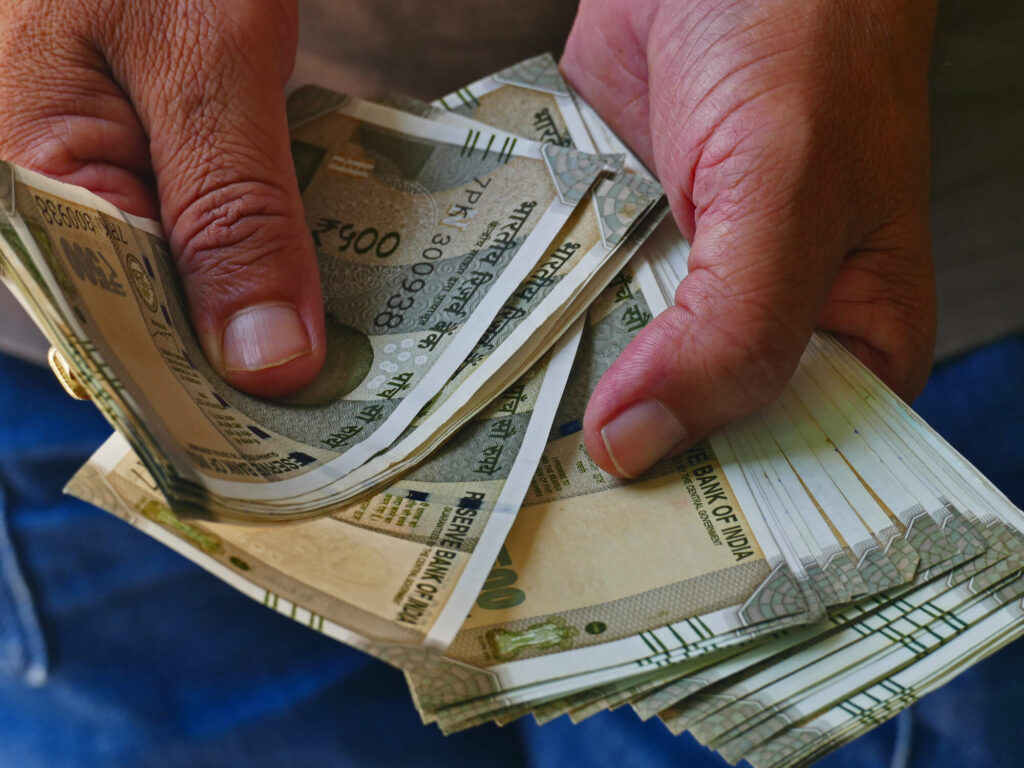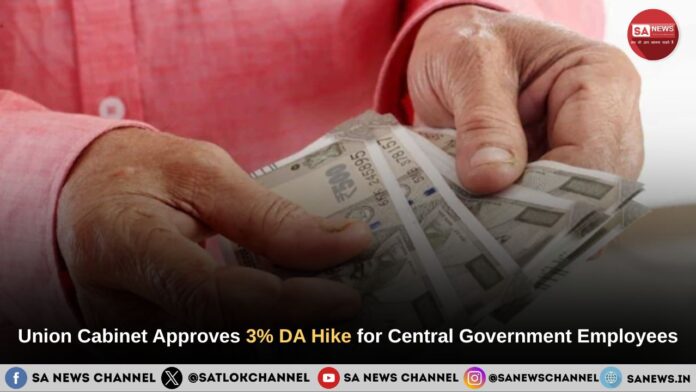Big festive boost for central government staff! The Union Cabinet has approved a 3% hike in Dearness Allowance (DA) & Dearness Relief (DR), effective July 1, 2025. This move will benefit nearly 1 crore employees & pensioners, easing inflation impact. A much-awaited Dussehra-Diwali gift for lakhs of families across India!
Key Takeaways on Union Cabinet Approves 3% DA Hike for Central Government Employees :
- The Union Cabinet has approved a 3% Dearness Allowance (DA) and Dearness Relief (DR) hike for central government employees and pensioners.
- The revised rates are effective from July 1, 2025, raising DA from 55% to 58% of basic pay/pension.
- Nearly 1 crore beneficiaries, including 49.19 lakh employees and 68.72 lakh pensioners, will gain from the decision.
- The move comes as a festive gift ahead of Dussehra and Diwali, offering relief against inflation.
- The annual financial impact on the exchequer is estimated at ₹10,084 crore.
- The hike is based on the recommendations of the 7th Central Pay Commission.
- Further salary revisions will depend on the upcoming 8th Pay Commission, effective from January 1, 2026.
Government’s Festive Gift: Relief Amid Rising Costs
The Union Cabinet, chaired by Prime Minister Narendra Modi, has approved a 3% increase in Dearness Allowance (DA) and Dearness Relief (DR) for central government employees and pensioners. The decision, announced on October 1, 2025, is being hailed as a Dussehra-Diwali gift, offering financial relief to lakhs of families at a time when inflation has been straining household budgets.
The revised DA and DR will be applicable from July 1, 2025, raising the rate from 55% to 58% of the basic salary and pension.
Who Benefits From the DA Hike?

- This decision is set to benefit nearly 1 crore people across the country.
- 49.19 lakh central government employees
- 68.72 lakh pensioners
The allowance, designed to offset rising living costs, is a significant part of government employees’ income structure. By increasing DA, the government aims to protect its staff and retired workers from inflationary pressures.
What is Dearness Allowance?
Dearness Allowance (DA) is a cost-of-living adjustment paid to employees and pensioners, ensuring that their income keeps pace with inflation. It is revised twice a year usually around Holi (March) and Diwali (October) based on changes in the Consumer Price Index (CPI) for Industrial Workers.
In simple terms, DA is the government’s tool to shield employees and pensioners from the rising cost of essential goods and services.
Impact on Salaries: A Practical Example
For many employees, this hike translates into a tangible increase in monthly take-home pay.
For instance:
An employee with a basic salary of ₹60,000 will now receive ₹34,800 as DA, compared to ₹33,000 after the March 2025 revision.
Previous DA Hikes: A Quick Recap
- March 2025: A 2% hike was announced, raising DA from 53% to 55%.
- October 2024: A 3% hike was approved ahead of Diwali, providing much-needed festive relief then.
- The current hike marks the second increase in 2025, underlining the government’s commitment to supporting its employees and retirees against the backdrop of inflation.
Financial Implications for the Government
While this hike is a welcome relief for employees and pensioners, it also represents a significant commitment for the government. According to official estimates, the annual financial impact on the exchequer due to the hike in DA and DR will be around ₹10,084 crore.

Such an investment reflects the government’s acknowledgment of its workforce’s crucial role in nation-building, especially during challenging economic times.
Role of the 7th Pay Commission
The decision to hike DA is in line with the recommendations of the 7th Central Pay Commission, which continues to guide salary structures and allowances. The 7th CPC simplified and rationalized nearly 200 allowances, ensuring greater transparency in employee compensation.
Currently, the salary structure of government employees typically includes:
- Basic Pay – about 51.5% of income
- Dearness Allowance (DA) – around 30.9%
- House Rent Allowance (HRA) – 15.4%
- Transport Allowance – 2.2%
This composition highlights the central role DA plays in supporting employees’ living standards.
Looking Ahead: 8th Pay Commission
While the present hike offers immediate relief, bigger changes are expected under the 8th Central Pay Commission (CPC), announced in January 2025.
The new commission is expected to review pay structures, allowances, and pensions, with changes likely to come into effect from January 1, 2026.
Experts suggest that:
Salary increments may depend on the ‘fitment factor’, expected to range between 1.83 and 2.86.
This could mean a 13% to 34% increase in salaries.
DA, currently at 58%, may be reset to zero and merged with the basic pay once the new commission’s recommendations are implemented.
This means while the immediate hike offers festive cheer, employees and pensioners can look forward to a broader restructuring in the coming years.
Why This Hike Matters Now
Announced just ahead of Dussehra and Diwali, the hike has symbolic and practical significance. Festivals are traditionally a time of increased spending, and the additional income will help employees manage festive purchases, travel, and family expenses.
Check 8th Pay Commission Salary Calculator
At the same time, in a period of inflationary pressure, the hike ensures that employees and pensioners do not see their real incomes eroded. It also sends a strong signal of the government’s recognition of their contribution.
A Step Towards Securing Livelihoods
The Union Cabinet’s approval of a 3% DA and DR hike is more than just a financial adjustment; it is a message of reassurance to nearly one crore families. It reflects a balance between fiscal responsibility and the need to safeguard employees’ livelihoods.

As the festive lights brighten homes across the country, this decision will bring added joy and relief to countless households. And with the 8th Pay Commission on the horizon, government employees and pensioners can anticipate even more substantial changes to their pay structures in the near future.
This Diwali, Discover Who is Adi Ram ? The Unique Spiritual Knowledge of Tatvdarshi Saint Rampal Ji Maharaj
As Diwali approaches, people celebrate by performing rituals and bursting fireworks. However, it is important to reflect on the pollution caused by crackers and the deeper significance of the festival. Traditionally, Diwali marks the return of Lord Ram Ji and Sita Ji to Ayodhya after 14 years of exile. But history raises a thought-provoking question: Two years later, Lord Ram Ji asked his pregnant wife Sita Ji to leave Ayodhya. If Lord Ram Ji were the complete Supreme Being, He would not have followed others’ instructions blindly.
Tatvdarshi Saint Rampal Ji Maharaj explains that true spiritual understanding lies in recognizing Adi Ram, the Supreme God, who deserves devotion according to Sanatan Dharma, beyond rituals and superficial celebrations. His teachings guide seekers to seek eternal truth, moral living, and pure devotion, offering clarity beyond festivals and ceremonies.
This Diwali, instead of just fireworks, one can reflect on the true essence of devotion and learn the eternal knowledge of Tatvdarshi Saint Rampal Ji Maharaj. For authentic spiritual guidance and access to His unique knowledge, visit www.jagatgururampalji.org.
FAQs on Union Cabinet’s 3% DA Hike for Central Government Employees and Pensioners
Q1. When will the 3% DA hike for central government employees come into effect?
The 3% Dearness Allowance (DA) hike will be effective from July 1, 2025, raising the rate from 55% to 58% of basic pay and pension.
Q2. How many employees and pensioners will benefit from the DA hike?
Nearly 1 crore beneficiaries, including 49.19 lakh central government employees and 68.72 lakh pensioners, will benefit from this decision.
Q3. What is the financial impact of the DA hike on the government?
The Union Cabinet estimates an annual financial burden of ₹10,084 crore on the exchequer due to the increase in DA and Dearness Relief.
Q4. How does the DA hike affect the salary of a central government employee?
An employee with a basic salary of ₹60,000 will now get ₹34,800 as DA, compared to ₹33,000 earlier providing direct financial relief during the festive season.
Q5. Will the upcoming 8th Pay Commission affect DA in the future?
Yes, under the 8th Pay Commission, expected from January 1, 2026, DA is likely to be reset to zero and merged with basic pay, along with a possible salary hike of 13% to 34% depending on the fitment factor.




